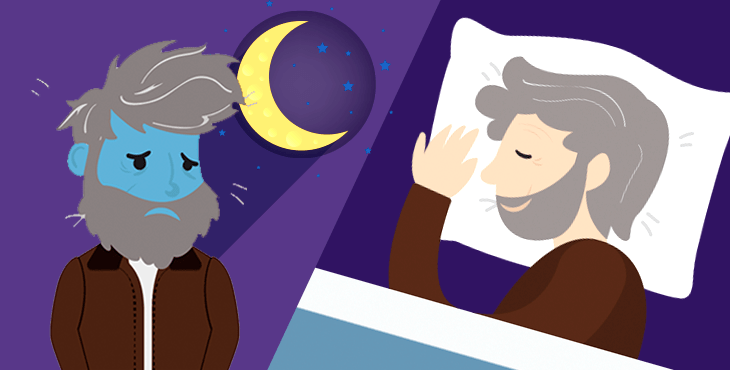You quit coffee, tea and chocolate! You put up black out curtains and got rid of all the screens in your bedroom. You even tried counting sheep. But still you find yourself lying awake, unable to sleep. Sleep Hygiene tips help many people. But they don’t work all the time and they don’t work for everybody – especially if you have been experiencing sleep problems for a long time.
Sleepless nights are not uncommon, but if they persist for weeks at a time and impact your life, it could be that insomnia, nightmares or other sleep problems are affecting your well-being. Insomnia after returning from deployment is one aspect of military service that relates to sleep problems. Training to be alert through the night, working extended shifts and upsetting memories from combat zones can all affect sleep, even after separating from service. This means that if you are a Veteran, you are more likely to have trouble sleeping than civilians.
Treatment is key to improving both your physical and mental health
Sleep problems often occur with PTSD, depression, anxiety and chronic pain, and can lead to trouble concentrating, challenging emotions, and a feeling of hopelessness that could worsen thoughts of suicide. So, it’s a good idea to talk to your doctor early, when you first notice changes in your sleep that impact your functioning. Proven treatments for insomnia are more effective than sleep medications in the long-term without the side effects.
“Cognitive Behavioral Therapy for Insomnia, CBT-I, targets behaviors and thoughts that perpetuate sleep problems, and is a treatment that has demonstrated longer-term effects than sleep medications”, says Dr. Sarra Nazem, a VA psychologist and researcher. “Imagery Rehearsal Therapy, IRT, is a treatment that involves re-scripting nightmares which can lead to decreases in nightmare severity and frequency.”
Take the Sleep Check-up to understand your own sleep. And remember, sleeping better means feeling better in all ways.
If you or a Veteran you know is in crisis call the Veterans Crisis Line at 1-800-273-8255 or text 838255.

Topics in this story
More Stories
Study underscores important role COVID vaccination can have in protecting Veterans from infection and reducing long-term health consequences
Columbia VA’s robotic surgery teams completed their 800th robotic surgery and are on schedule to hit 1,000 by the end of the year.
In a decentralized clinical trial, Veterans can participate from their own homes or local VA instead of having to travel to a research site.







sometimes I am afraid to go to sleep because of nightmares
There was a time i deprived myself of sleeping, i remembered that it really affected me then thanks alot for the uipdate
I’ve found that turning off all screens(TV and phone), and dimming the lights at least 30 minutes before going to bed helps calm me and fall asleep more quickly. Tips I learned when managing sleep during my pregnancy.
There was a time i deprived myself of sleeping, i remembered that it really affected me then.
Thanks alot blogs va. I like this post alot
There was a time i deprived myself of sleeping, i remembered that it really affected me then.
Thanks alot blogs va. I like this post.